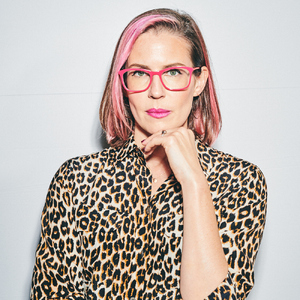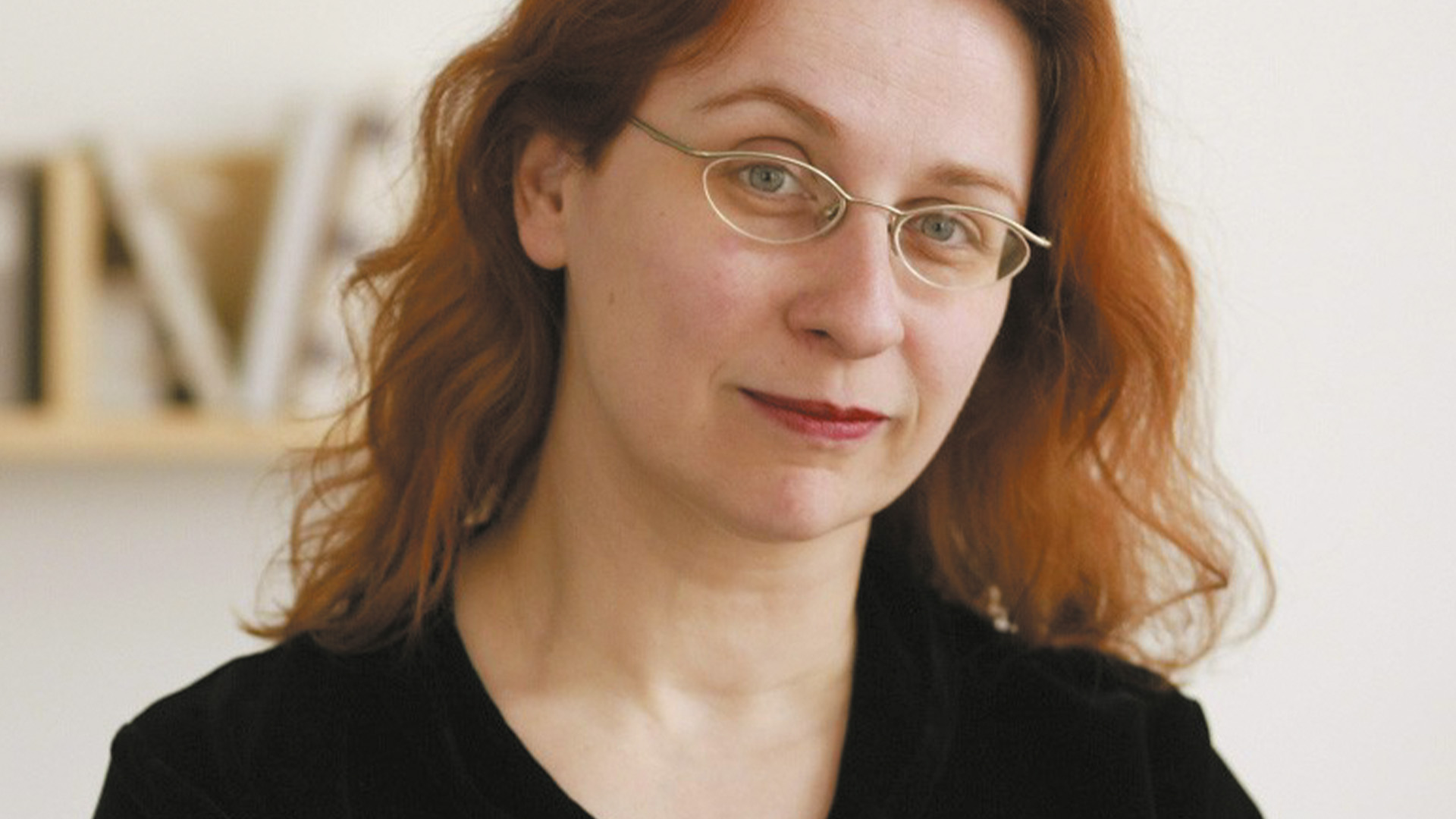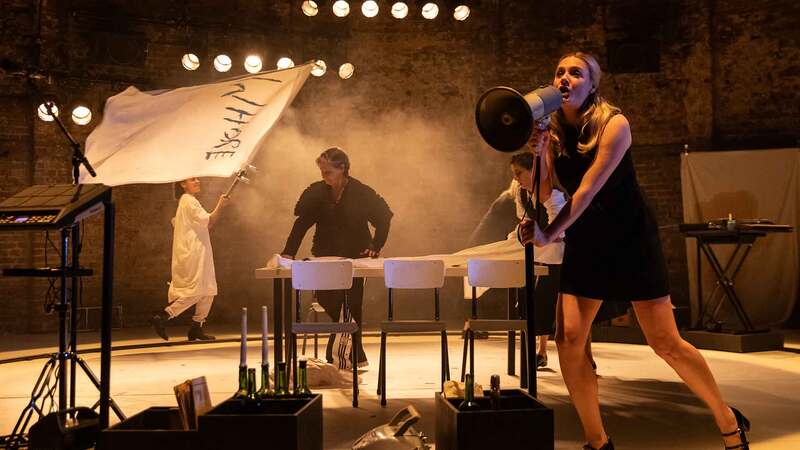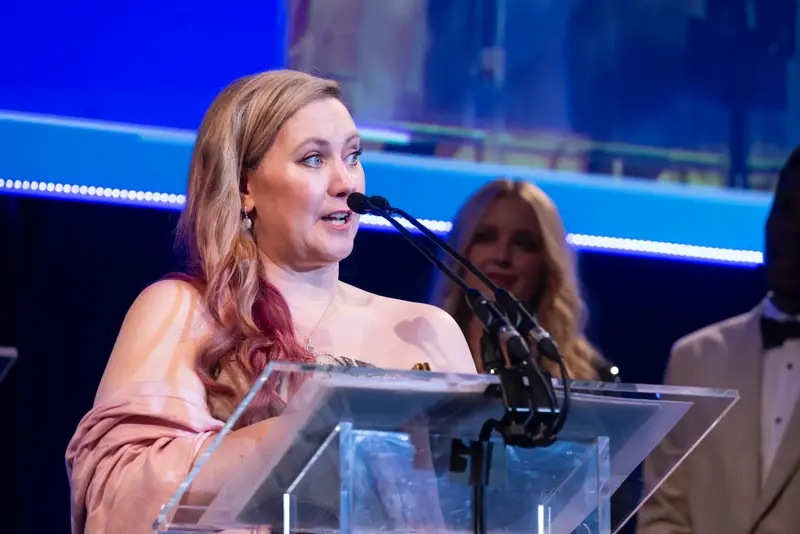You are viewing your 1 free article this month. Login to read more articles.
Making a musical
Retaining the magic and romance of a literary novel while adapting it into a musical is no small feat, but it helps when the book is perfect.
It started like everything involved with this musical started, with an unwavering love of Audrey Niffenegger’s book. I have been chasing the glorious feeling of reading the final chapter of The Time Traveler’s Wife for decades now. It was so moving, so surprising, so soulful and strange. Apparently the same thing happened to Nadine, the wife of our producer Colin Ingram. Nadine was the one who told Colin that he should musicalise the book because she loved it so much and, thankfully, he listened. I was hired to adapt it after I met with Colin in 2018 and rather brazenly told him: “Look. I adore this book. I see how it can work onstage and retain what is literary and romantic and magical about it. I am the best person to adapt it. Let me show you what I can do.” And I gave him the first act already written. It was a bit of a bold move but it worked.
The love story
I remember being smitten with Niffenegger’s structure. The way the book slips between perspectives and times; the way it folds back on itself as Clare and Henry’s timelines sync up and get tangled. The complexities of the story—both in terms of form and content—are so fantastical but in the end to me it felt like one long beautiful metaphor for mortality. Henry’s condition does not make him a superhero, it makes him vulnerable. How do we love in spite of hardship? That’s where the love story takes over. When we’re facing mortality we face it alone unless we have real, unflinching love at our side. That’s what we wanted to capture in the musical. That is what sings about her story. Joss Stone and Dave Stewart and our music team have done an extraordinary job in creating songs that allow Clare and Henry to go deep into the emotion that the book describes.
A good, respectful adaptation can be parallel to the book, rather like the same song in a different key
It all started with the title. It’s called The Time Traveler’s Wife, not “The Time Traveler”. So I wanted this adaptation to centre on Clare, her agency, her art, her love and resilience. Henry is the other half of the story of course, and our team gives him fabulous magical moments where he disappears in front of the audience and beautiful songs that capture his mother’s loss and his father’s abandonment. But we largely stick with Clare’s timeline which helps focus the story and distil it to something a musical can best express. I also adjusted characters (such as Gomez and Charise) so that they are a part of Clare’s earlier life (in the book they become friends when she is an adult). But having them as high school friends allows the audience (and Clare) to invest in them for the whole show and not have them show up only in Act Two. All of these changes help the story fit in “the two hours traffic of our stage.”
The truth is that no adaptation of any book will ever replace or be the book. But a good, respectful adaptation can be parallel to the book, rather like the same song in a different key. A musical has different tools to express the same themes, plot and characters. For example, the top of Act Two has a song called “Journeyman” where the audience gets to follow Henry as he time travels. It’s a searing song with abstract choreography, gorgeous stage illusions and cinematic projection design that is something only theatre could do.
The question we always get from book lovers is: “Will the ending of the musical be like the movie or the book?” That’s the very first thing I told Colin when we first met. I said “I only want this musical if it ends like the book.” That final chapter is the reason I wept when I finished the book. So, yes, bring tissues to the theatre.
The next books
Audrey Niffenegger is incredibly kind and wished our team well. She wrote a perfect book. She was very generous and met with me when I was in Chicago last, which was such an honour. When I was leaving she pointed to a large stack of white pages on her desk and said, “That’s the next book.” I almost fainted. It was so exciting. I cannot wait to read it.
Honestly, becoming so enmeshed in her book while adapting it also inspired me to do something I never thought I would do: write my own novel. I wrote it this summer while working in the UK on “Time Traveler’s Wife” and my play anthropology at Hampstead Theatre. It’s called The Fervor Witch, and is a big witchy romantic history set in London in 1609. I have always found that experiencing great writing inspires me to write.

















